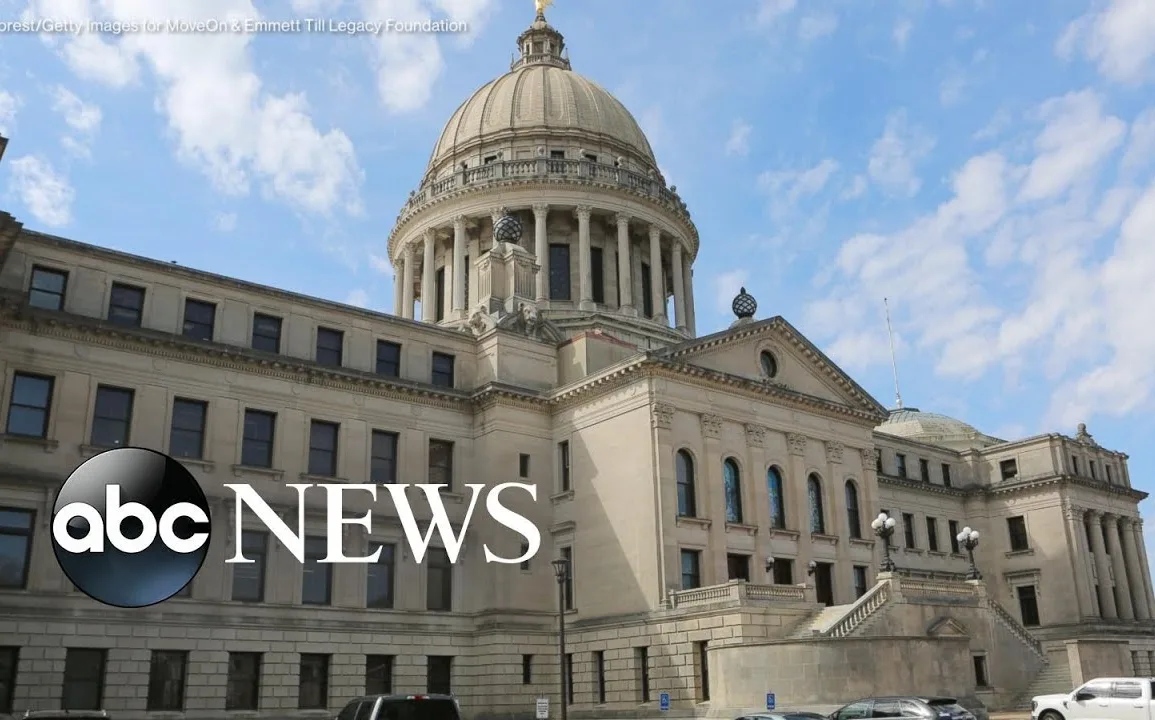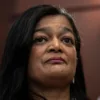Louisiana had two Black acting governors after the Civil War during Reconstruction, but voters in the state have never elected a Black person to the state’s highest office.
This fall, Louisiana voters are likely to send a Black candidate to the Nov. 18 runoff election for just the third time in Shawn Wilson, who has consolidated Democratic support among the seven major candidates in the race.
Wilson, former transportation secretary for Democratic Gov. John Bel Edwards, is expected to be one of the top two finishers in the Oct. 14 primary election to advance to the runoff.
Two other Black candidates also qualified for the race, but aren’t considered contenders − Benjamin Barnes, an independent, and Xavier Ellis, a Republican.
Only three Black governors have been elected in U.S. history
Only five Black men have served as governor of any state in U.S. history, but only three of them were elected.
In 1868 in Louisiana, Republican Oscar Dunn was the first Black lieutenant governor in the country to be elected when he ran on a ticket headed by Republican Gov. Henry C. Warmouth. Dunn became the first Black acting governor of a U.S. state in 1871 for 39 days after Warmouth injured his foot and left Louisiana to recuperate.
Dunn later died in office and was replaced as lieutenant governor by P.B.S. Pinchback, another Black Republican, who would go on to serve as acting governor of Louisiana for 34 days after Warmouth was impeached in 1873.
Democrat Douglas Wilder was the first Black person elected governor in United States history in 1990 when Virginia voters vaulted him into office.
Democrat Deval Patrick was elected governor of Massachusetts in 2007 and served two terms, while Democrat David Paterson served as governor of New York from 2008-2011.

Cleo Fields became the first Black candidate to make a contending run for Louisiana governor in over 100 years
In 1995, then Congressman Cleo Fields, a Democrat from Baton Rouge, entered the gubernatorial race to replace Democratic Gov. Edwin Edwards.
Many in the Louisiana Democratic Party were angered by Fields’ candidacy, according to Range Voting, most believing that a Black candidate could not win the office, and an Oct. 17, 1995, Mason-Dixon Polling showed Fields to be the loser in every possible head-to-head combination of candidates.
However, Fields beat Mary Landrieu and Phil Pres, the top white Democratic candidates, in the primary with 19% of the vote against Republican Mike Foster’s 26%. Fields was defeated by Foster in the Nov. 18, 1995, runoff in a landslide.
Fields, who now serves in the state Senate, vowed that he wouldn’t use race in the election. “I’m not running to be the African-American governor; I’m running to be the best governor Louisiana’s ever had,” he said then.

In 1999, Foster swept to a second term after beating Black Congressman Bill Jefferson, who carried only two parishes, Orleans and East Carroll, where he grew up in Lake Providence.
Wilson believes Louisiana is ready to elect a Black governor
Wilson believes Louisiana’s demographics present the possibility of electing a Black governor.
“The fact that I’m an African-American and a Democrat – we have more registered Democrats in our state – I think it speaks that opportunity, as well as the majority of those Democrats being African-American,” he said. “And we’ve seen the affect of those numbers in other elections in different communities. As I travel across the state, we’re approaching 40,000 miles on the vehicle, in both urban and rural communities, talking to a diverse group of people.
“This issue comes up often and there’s a great deal of hope and opportunity not just in people of color’s minds but in the minds of the voters across the state.”
As of 2023, there are 926,353 registered Black voters in the state, according to the Louisiana Secretary of State, about a third of Louisiana registered voters. Of those, 702,791 are Democrats.
Ellis, the youngest candidate in this year’s gubernatorial race at 29, believes the state can elect a Black governor, but acknowledges the odds are steep.
“It give me trepidation because it’s three of us, so you would think this will be the election where it would be a strong possibility of it happening,” Ellis said. “Will it happen? That’s still to be seen, and I feel like we just have to look in the mirror and ask, ‘What is the right thing to do?’ in all our walks of life.
“Being truthfully honest with you, if I listened to the pundits and the reporters, I would say no, it’s not going to happen this year. But I do have faith in God that he can work out a David and Goliath-type story and possibly, we’ll be looking back at this day and say, ‘Wow, it actually happened.'”
Edwards won the 2019 gubernatorial election with the support of Black votes and heavy Black turnout of 30%, earning 95% the Black vote, which Wilson said he plans to duplicate or exceed this fall.
“We know that we see a 30 plus, 35% turnout as something that’s huge, but there’s so many important issues on the table today,” Wilson said. “This is a different world than it was in 2015, and I’ve seen elections determined by 10 or 15% of the vote and that is just, I think, not good for our democracy and our state.
“The fact is that we know gubernatorial elections tend to generate more activity than other elections, perhaps not as much as presidential elections. I believe that we’re going to have a similar formula in terms of turnout for voters as well as folks interested in the issues at hand whether its insurance, public safety and dealing with issues of crime or whether its around infrastructure and economic development.

“Folks are going to pay attention to the issues, and I think the issues we’re seeing today are so pressing that there’s going to be a great deal of enthusiasm and support. We’re going to do everything we can to generate that kind of turnout to get as many voters as we can to the polls to support our campaign.”
Ellis said he plans to engage younger voters, particularly Gen Z and Millennial voters on college campuses throughout the state, to help win the gubernatorial election.
“One thing we know is that seniors are going to come out and vote,” Ellis said. “I also don’t want to just leave them out as well, but I have to work pretty much every demographic. My strategy from now until Oct. 14 will be to cover as much of the state’s colleges… just try to get the young people, because I feel like young people are ready for change.”
Political analyst: Wilson faces challenges in obtaining 51% vote in runoff
John Couvillon, a noted pollster and political analyst, said there are factors and challenges Wilson faces if he wants to get majority of the votes in the Nov. 18 runoff.
Wilson must appeal to a significant number of white Independents and Republicans, much like Edwards did in 2015 and 2019, he said.
“John Bel Edwards took Republican-ish stances on abortion and guns that, combined with his military and law enforcement background, made him acceptable to a significant number of Republicans and Independents,” Couvillon said. “In addition, when John Bel Edwards was running for re-election, he talked about the nine times he’d visited the Trump White House.
“He has to hope that the Republicans are so worn out from fracture-cide that there will be defections as they were in 2015 and 2019.”
Couvillon argues that Wilson lacks sufficient resources to compete against other major candidates.
“From his July finance report, Shawn Wilson had $600,000 on hand, which obviously has dwindled some since then. I’ve not seen him on the TV, whereas Hunter Lundy’s starting to run ads,” he said. “So Shawn now has to worry about how much votes Hunter Lundy (an Independent) can pull away from Shawn’s column.”
Follow Ian Robinson on Twitter @_irobinson and on Facebook at https://bit.ly/3vln0w1.
Support local journalism by subscribing at https://cm.thenewsstar.com/specialoffer.



